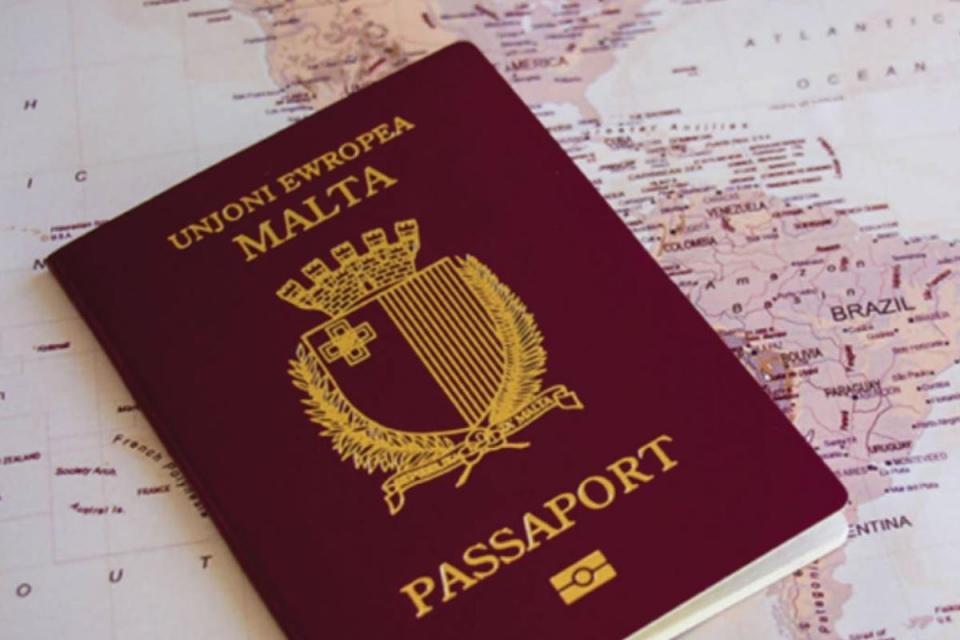A questionable ruling in the case of Malta’s citizenship program
A questionable ruling in the case of Malta’s citizenship program

European jurisdiction versus national sovereignty: A questionable ruling in the case of Malta’s citizenship program
Once again, a ruling by the European Union’s Supreme Court is causing controversy and fueling growing criticism of Brussels’ policies. On April 29, 2025, the court declared Malta’s so-called “Golden Passport” program, which granted citizenship to investors, incompatible with EU law, thus invalidating it. This program had allowed wealthy foreigners to obtain Maltese and thus European citizenship through significant financial commitments.
The court’s reasoning that the Maltese regulation amounts to degrading citizenship to a purely commercial matter may be legally sound. However, this strictness appears to be in striking contrast to the EU’s current migration policy, which is perceived as inconsistent in many respects.
The EU’s questionable logic: Openness for many, restrictions for the wealthy?
It seems strange for the EU to dictate to a sovereign state like Malta how it should shape its own citizenship laws. Where does the principle of national self-determination become when Brussels sees itself empowered to intervene in the internal affairs of a member state in this way?
This intervention takes on a particularly explosive aspect in light of the EU’s simultaneous immigration policy, which is often criticized as uncontrolled. While a few, but thoroughly vetted and financially powerful investors with impeccable reputations, who would be willing to invest significant sums in European economies and create jobs, are denied EU citizenship, at the same time hundreds of thousands, if not millions, of people with often unclear origins and dubious motives are being admitted into the EU.
The reasons cited to legitimize this immigration – be they family connections or vague humanitarian considerations – seem downright cynical in light of the hostility towards financially strong individuals of integrity. The rising crime rate in many European countries, particularly the alarming increase in violent crime, is often ignored or downplayed in this discussion.
Malta’s Investor Program Under the Scrutiny of the European Court of Justice: A Violation of European Law

The European Union’s highest court has ruled that Malta’s so-called “Golden Passport” program, which enabled the acquisition of citizenship through investment, violates EU law. The European Commission referred Malta to the Court in 2022. At its core, the case concerned the practice of granting foreign nationals a Maltese passport, and thus the right to move and work freely throughout the EU, in return for a financial contribution of at least €600,000 for a stay of 36 months or €750,000 for 12 months, plus a real estate investment of at least €700,000 (or an annual rent of at least €16,000 over five years), a donation of at least €10,000 to charity, and various government and agency fees. The initial financial burden on the applicants thus amounted to at least €1.2 million.
The judges concluded that this scheme aimed to make the acquisition of citizenship a purely commercial matter. The Maltese government expressed its respect for the ruling and announced a detailed review of the legal consequences in order to bring the citizenship-by-investment framework into line with the principles of the ruling. At the same time, the government emphasized its “firm intention” to defend this framework, as it considered citizenship issues to be entirely a national competence. It pointed out that the program had generated over €1.4 billion in revenue since 2015, which had contributed to strengthening a national investment and savings fund.
However, the court argued that, although the determination of citizenship criteria is, in principle, a matter for member states, the Maltese practice jeopardizes “mutual trust” between EU states. Failure to comply with the ruling exposes Malta to financial penalties.
It is noteworthy that this decision contradicts the assessment of the Court’s former Advocate General, Anthony Collins, who argued last October that the Commission had not sufficiently demonstrated that EU law requires a “genuine link” between a person and the state for legitimate citizenship, and that the decision on this lies within the sovereignty of each individual member state.
The Maltese government noted that it was not the only country in the EU with similar regulations and regretted that the court had ignored the Advocate General’s recommendation. In 2022, Malta suspended the program for nationals of Russia and Belarus in the wake of the war in Ukraine and European sanctions.
The EU had previously called for a general end to such investor citizenship programs, pointing to inherent security risks as well as the danger of money laundering, tax evasion, and corruption.
The Expansion of the EU Agenda Against Investor Citizenship Programs
The ruling against Malta is symptomatic of the EU’s increasingly critical stance toward investor citizenship programs. It is expected that similar steps could be taken against other countries, particularly in the Caribbean, whose programs are also under scrutiny. The future impact on the freedom of travel of people with passports from these countries within the Schengen area remains to be seen.
GCI UNIT Worldwide: Your Partner for Global Mobility and Financial Independence
We at GCI UNIT Worldwide recognized this development early on. European policy priorities currently appear to be focused more on accepting large numbers of young people from third countries without secure financial or intellectual backgrounds than on attracting carefully selected, wealthy, and honest investors.
It seems unlikely to us that a millionaire among our clientele would be involved in criminal activities.
Regardless of the decision in the Malta case, we continue to offer you alternative paths to global mobility and financial independence.
Consider combining residency through investment in countries with Schengen access, such as the Balkans, with one or more citizenships from geopolitically neutral states without significant natural resources or military ambitions. This provides you with independence, tax advantages, and a safe haven in an increasingly complex world.
Contact us for an independent and free consultation. We will provide you with a customized analysis tailored to your personal needs and lifestyle. Discover the diverse possibilities beyond traditional European passports with GCI UNIT Worldwide.
We’ve helped hundreds of people move their businesses overseas, legally reduce their taxes, and become dual citizens. We are focused on high-net-worth individuals and their families as well as corporations wishing to invest their offshore companies or even secure their wealth in offshore financial centers around the world. We will help you to find the best solution for setting up an offshore or onshore company. Another special area of our full-service consulting is the investment opportunity and solution in Europe, especially in the Balkans, Africa, Asia, UAE, the Caribbean and the Pacific.
If you are looking for it, please feel free to contact us. We create a holistic plan that serves your purpose.
The TCME Group Worldwide as well its partner in Vanuatu are accredited, licensed and authorized agents and facilitators of the Government of Vanuatu for the citizenship programs of the VDSP and the CIIP in Vanuatu.
GCI UNIT Worldwide by TCME Worldwide Group, designs and implements customized, holistic strategies for successful investors and entrepreneurs to legally reduce their tax bills, diversify and protect their wealth, invest abroad, gain a second citizenship and live a freer life worldwide to lead.
YOUR CHANCE FOR A BETTER LIVE
TCME Worldwide Group firm is a leading professional International Business Investment and Advisory Firm for Foreign Economic Relations. Our range of services includes:
Offshore and Onshore Company Formation,
international Business & Management
Citizenship & Residency (Advice on residency and citizenship by investment programs, VIP citizenship programs in cooperation with more than 70 countries)
Investments & Corporate Financing
Advisory for Foreign Economic Relationship
Diplomatic Consultancy & Public Affairs
If you would like to discuss your internationalization and diversification plans, book a consulting session* or email us under: [email protected]
*A counseling session is a conversation about your portfolio and goals. It does not constitute legal, financial, tax or investment advice.
TCME Worldwide Group – Global Investments –
Level 33, Ilham Tower, 8 Jalan Binjai,
Kuala Lumpur 50450, Malaysia
www.tcme.company
www.citizenship-news.com
International Phone: +66 99091 8357 (also for BOTIM, Signal, Viber, Telegram)
Malaysia Phone: +603 2169 7057
Montenegro Phone: +382 69 150 130 (WhatsApp)
Telegram https://t.me/passport_Vanuatu
Telegram https://t.me/passport_news





